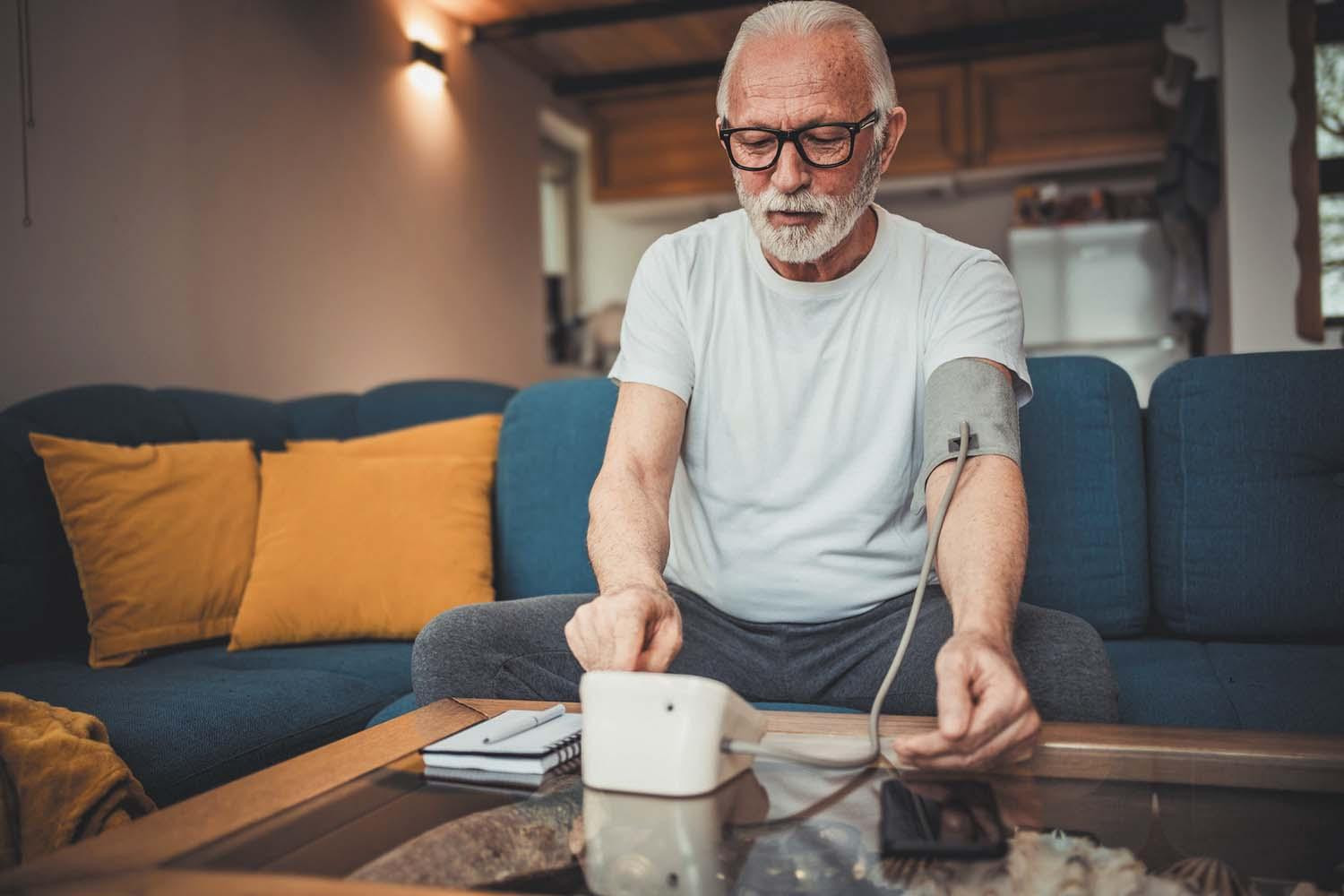
5 timeless habits for better health

What are the symptoms of prostate cancer?

Is your breakfast cereal healthy?

When pain signals an emergency: Symptoms you should never ignore

Does exercise give you energy?

Acupuncture for pain relief: How it works and what to expect

How to avoid jet lag: Tips for staying alert when you travel

Biofeedback therapy: How it works and how it can help relieve pain

Best vitamins and minerals for energy

Should you take probiotics with antibiotics?
Blood Pressure Archive
Articles
Do you have metabolic syndrome?
Metabolic syndrome is defined as having at least three of the following: abdominal obesity, high blood triglyceride levels, high blood pressure, high blood sugar levels, and low HDL cholesterol levels. The condition significantly increases the risk for cardiovascular disease, diabetes, kidney disease, fatty liver disease, and sleep apnea. While each factor is problematic, the main driver is abdominal obesity, from visceral fat surrounding internal organs. The best way to reduce visceral fat is aerobic exercise, strength training, and a plant-based diet.
Cushing's: A master of disguise
Cushing's is marked by elevated blood levels of the hormone cortisol. Far more common in women, the condition is categorized as a disease or syndrome based on what factors trigger it, which can include using corticosteroids or having a tumor on the brain's pituitary gland or elsewhere. Symptoms include a swollen face, excess belly weight, fatigue, a fatty hump between the shoulders, stretch marks, easy bruising, and slow wound healing. Cushing's can also lead to health problems such as cardiovascular disease, bone loss, and diabetes.
Take back your blood pressure control!
When blood pressure remains high despite treatment, making certain lifestyle changes can help. Examples include reducing dietary sodium and increasing dietary potassium, losing weight, limiting alcohol intake to no more than one drink per day, exercising (doing aerobics and strength training), using tools that improve medication adherence (such as an automatic pill dispenser, a medication diary, a smartphone alarm, or a reminder app), quitting smoking, getting more sleep, managing stress, and reducing caffeine intake.
Telehealth may help maintain healthy blood pressure
Telehealth visits combined with home monitoring may be an effective way to help people reach and maintain their blood pressure goals, according to a 2025 study.
Treating high blood pressure may help lower risk of cognitive decline
People who aggressively lower their high blood pressure not only help their heart health, but also may protect their brains from cognitive decline in the process, according to a 2025 study.
Don't overlook blood pressure control when you have glaucoma
Blood pressure problems might contribute to glaucoma, a condition that damages the optic nerves and causes vision loss. If blood pressure is too low, for example, blood flow to the optic nerves might decrease. That could deprive the optic nerves of oxygen and nutrients, resulting in nerve damage. High blood pressure might also reduce blood flow to the optic nerves, by damaging the blood vessels that supply the nerves. If glaucoma gets worse despite treatment, blood pressure should be considered as a factor.
Are salt substitutes a smart choice?
Substituting potassium-containing salt substitutes for regular salt can help lower blood pressure as well as the risk of stroke. But people should also check the sodium content in foods and eat more potassium-rich produce.
Intensive blood pressure control may lower risk of cognitive problems
Intensive blood pressure control that lowers systolic blood pressure (the first number in a reading) below 120 points may lower the risk of cognitive impairment or probable dementia.
Intensive lowering of blood pressure may protect people with type 2 diabetes from heart disease
People with type 2 diabetes may have greater protection from cardiovascular problems if they keep their systolic blood pressure (the first number in a reading) to 120 mm Hg or lower, according to a 2024 study.

5 timeless habits for better health

What are the symptoms of prostate cancer?

Is your breakfast cereal healthy?

When pain signals an emergency: Symptoms you should never ignore

Does exercise give you energy?

Acupuncture for pain relief: How it works and what to expect

How to avoid jet lag: Tips for staying alert when you travel

Biofeedback therapy: How it works and how it can help relieve pain

Best vitamins and minerals for energy

Should you take probiotics with antibiotics?
Free Healthbeat Signup
Get the latest in health news delivered to your inbox!
Sign Up











